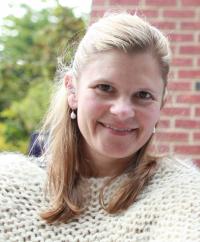非常抱歉,
你要访问的页面不存在,
非常抱歉,
你要访问的页面不存在,
非常抱歉,
你要访问的页面不存在,
验证码:

职称:Professor
所属学校:University of Washington-Seattle Campus
所属院系:Museology
所属专业:Museology/Museum Studies
联系方式:206-616-6306
I am a developmental psychologist and a learning scientist interested in contributing to theory building, research, and practice. My work seeks to understand the contextual and social features of learning environments and their impact on participants’ learning and development.
My early work focused on cognitive and social dimensions of learning. In more recent work, I combine my understanding of the conceptual and social nature of learning with the affective and motivational dimensions to provide a more holistic account of learning. I am interested in how people learn across disciplines, contexts, and age of participants, although children remain a key population for me and science learning in both formal and informal settings is a central site for my investigations. My research program has developed lines of work around three interrelated strands: (1) research on the conceptual, social, and discursive dimensions of science learning; (2) understanding learning as a holistic process of developing people while expanding their knowledge and skills; and (3) bridging research and practice through partnerships in formal and informal settings. My research on children’s school science learning was conducted in diverse urban settings across the United States, with many racial, ethnic, and linguistic groups represented. Some participating schools had high percentages of students in poverty, with over 90% of students receiving free or reduced price lunches. My findings demonstrated that diverse urban elementary science learners are capable of sophisticated epistemological and conceptual thinking, something that was not widely recognized or understood within the field. My work has impacted the field by providing evidence of how social dynamics and discourse practices in classrooms impact students’ science learning. In addition, while scholars have developed and shared approaches to scientific inquiry that have emphasized important epistemological dimensions of science learning, little is known about the connection between students’ difficulties with inquiry and the kinds of pedagogical practices that successfully support students to develop conceptual and epistemological practices that are robust and sophisticated. Recently I’ve investigated the pedagogical dilemmas that teachers face when engaging elementary and middle school students in scientific inquiry and the practices that the teachers developed to support students’ learning around the most challenging aspects of inquiry. Early on in my career, I realized that focusing on conceptual and epistemological dimensions of science learning alone did not fully capture how, when, and why students put important knowledge, skills, and practices to use. To address these issues, I have developed a line of theoretical and empirical work that investigates how people come to use knowledge and skills in the way that they do. I began to examine students’ interests, motivations, and affective orientations toward learning. Together with doctoral students, I have examined power dynamics in the classroom and investigated how personal and social values—about what is worth learning and how learning should take place—are negotiated in the classroom. In my recent book with doctoral student Veronique Mertl, How Students Come to Be, Know, and Do: A Case for a Broad View of Learning, I build a theoretical argument and methodological approach for studying learning in a holistic way. Learning is frequently conceptualized as a process of building “knowledge,” without paying close attention to the social and emotional aspects of what it means to learn. In this book, we argue for a perspective on learning that goes beyond mastering knowledge and academic content. We argue that to talk about students’ learning in terms of knowledge alone diminishes and dismisses some profound and complex human experiences that can have both short-term and long-term effects. Developing interest, persisting in the face of difficulty, actively listening to other’s ideas, accepting and responding to feedback, challenging ideas, being wrong, and identifying with the scientific enterprise in constructive ways are also crucial dimensions of students’ experiences. As students become knowledgeable in new areas of study, they also become participants in relation to that subject matter, to one another, and to teachers, parents, and the larger community. Our book makes an argument for a view of human learning that engages the “affective-volitional processes” (Vygotsky, 1987/1934) of “becoming” students together with key processes of knowing and doing science. In the book, we provide examples of urban fourth graders from diverse cultural and linguistic backgrounds studying science as a way to illustrate how this model contributes to a more complete and complex understanding of learning in school settings.